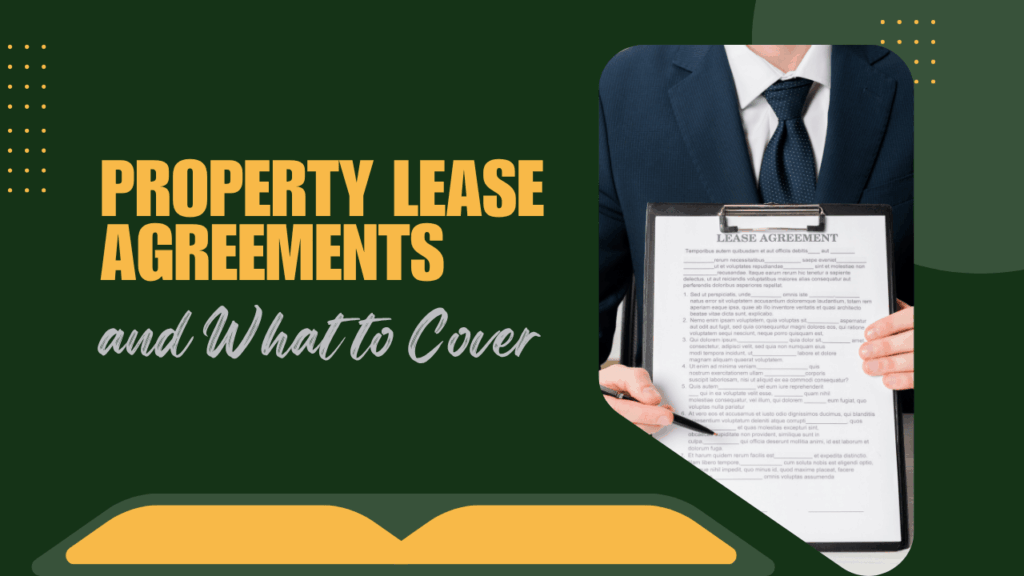
What should your lease agreement cover?
There are the basics, of course, like names and contact information and when the lease starts and when it ends. You’ll want rental and security deposit amounts.
There are also specific provisions and disclosures that your lease agreement needs in order to be legally compliant in the state of Colorado.
We aren’t lawyers, but we are property managers who have been working with lease agreements in Colorado for decades. We’re talking today about the things that absolutely must be included in your new and existing lease agreements. To make things even more complex, there are also some things that are prohibited from being included in your lease.
Not sure you’re in compliance? Contact us and we’ll take a look at what you’re working with. Until then, this is the general information we can give you about what your rental property lease agreement needs.
Mandatory Disclosures in Colorado Lease Agreements
Mandatory disclosures in Colorado lease agreements are in place to protect the health and safety of the tenants renting your property. These disclosures also ensure transparency in the property condition and its potential concerns.
Here are the areas that require disclosure in your lease agreement.
- Lead-Based Paint. This is hardly a new one; Colorado landlords and landlords across the country have been mandated to include information about lead-based paint that could be found at the property. If your rental home was built before 1978, you must provide a lead-based paint disclosure. There are materials already written that you can provide to tenants around the dangers involved with lead paint, and how to prevent exposure, but your lease agreement also needs to reference the potential presence of lead-based paint and the inherent risks.
- Radon Gas. If you know that there is radon gas in your rental property, you need to disclose its presence in your lease agreement, informing tenants about the potential health risks of radon exposure and providing resources on where to get more information. The disclosure should inform tenants that radon is a naturally occurring radioactive gas and when it accumulates in sufficient quantities, this gas may present health risks.
- Bed Bugs. No one likes to think about the presence or even the potential presence of bed bugs in their homes, but you have to disclose that they’re there if you know that your property may contain them. Specifically, your lease must disclose whether the rental property contained bed bugs within the past eight months. You’ll also need to provide the last date of inspection and confirmation of being free of bed bugs, upon request from a prospective or current tenant.
- Habitability Standards. In Colorado, landlords must ensure that the property they are renting out is habitable, and you need to disclose that all habitability standards have been met in your lease agreement. In order to be considered habitable in the state of Colorado, your rental unit must have access to heat, water, plumbing, and electrical systems. There cannot be any structural hazards, and the property must be free of pests.
- Income Non-Discrimination. When you’re collecting and screening applications and deciding on which tenants you’ll approve, you cannot base your decision on an applicant’s source of income. This is to ensure that tenants with housing subsidies have an equal opportunity to rent your property. Landlords must ensure that their rental practices do not discriminate based on income, and not only do you need to incorporate this into your screening process, you also must disclose it in your lease agreement. This will keep your lease compliant with existing state laws.
Make sure your lease agreement includes these important disclosures. Lease renewals should be updated to reflect any legal or regulatory changes that have gone into effect since the lease was first signed as well. If you need help with the terminology, please get in touch with us and we’ll be happy to help.
Important Inclusions for Colorado Lease Agreements
While you’re evaluating your lease agreements to ensure they’re compliant with all of the latest Colorado laws, it’s a good time to ensure they’re also inclusive of these important terms and clauses.
- Entry to the Property. This is an easy one to overlook, but it’s important that your lease outlines the circumstances under which the landlord may enter the property, the length of notice required, and the hours and days they may enter.
- Subletting/Assignment. It’s becoming a bit of an issue; tenants renting out their own homes in order to make some money when they’re not home. But, you want to be careful with this and prevent unscreened and unknown people from taking up residence in your rental. So, make sure your lease is specific about whether the tenant can sublet or assign the lease, and any restrictions or requirements.
- Pet Policy. Make sure your lease agreement reflects your stance on pets and whether you allow them or forbid them or if you’re open to considering them. If pets are allowed, the lease should specify any restrictions or fees. A strong pet policy should be an addendum in any Colorado lease agreement.
- Smoking Policy. You want your lease to be clear on this. Make sure you state whether smoking is allowed on the property and where. And, while marijuana is legal in Colorado, landlords have the right to prohibit its use and cultivation on their properties. This should be clearly stated in the rental agreement if you are choosing to impose such a restriction.
- Utilities. Every lease agreement needs to inform tenants about who is responsible for paying for utilities (electric, gas, water, etc.). In most cases, you’ll leave tenants to set up their own accounts and to pay those bills. Make sure the lease is clear about that. If you prefer to keep the accounts in your own name and either bill a flat fee or a usage-based cost in addition to rent or included in rent, make sure your lease agreement
- Snow Removal, Garbage Collection, Lawn Care. Who is responsible for these services? Make sure your lease agreement is clear about it so there isn’t any conflict, dispute, or misunderstanding.
If there’s going to be a disagreement around the lease and the lease term, we’ve found that it usually occurs during the move-out, when tenants are expecting to get their security deposits back and landlords are making deductions from those deposits in order to pay for repairs and cleaning.
You can avoid this by making sure your lease has clear and distinct move-out requirements. You want to share your cleaning expectations and your list of what a tenant will need to do in order to get their security deposit back.
Protections Your Lease Agreement Should Provide
A good lease will reflect your commitment to equal opportunity in housing and your compliance with anti-discrimination laws. As a landlord, you must comply with all federal and state fair housing laws, which prohibit discrimination based on race, color, national origin, religion, sex, familial status, disability, and other protected classes. Colorado extends protections to include sexual orientation and gender identity. When you have this in writing and added to your lease agreement, you’re protecting yourself from unnecessary scrutiny and affirming your commitment to high quality housing for all people.
Colorado law also provides specific protections for tenants who are victims of domestic violence. Landlords must allow these tenants to terminate their lease without penalty if they provide proper documentation, such as a police report or protection order. You want your lease to include this protection.
Where are the Mistakes Made?
In an effort to help you avoid the common pitfalls that often trap rental property owners in Colorado, we want to provide a brief list of easy mistakes.
- Incomplete or Vague Agreements
You want your lease agreement to be clear and detailed. We understand how difficult it can be to hand over a long and descriptive lease in the hopes that tenants will read every page and understand every clause, but it’s better to have too much detail than not enough. An incomplete or vague rental agreement can lead to disputes and confusion. When all terms are clearly defined, you’ll improve tenant satisfaction and protect your own property. You’ll also comply with Colorado law.
- Failing to Update Agreements
If you have a tenant who has been in place for 10 years, the laws are a lot different now than they were then, and your lease might not reflect them. Laws and regulations can change. Landlords should periodically review and update their rental agreements to ensure they remain compliant with current laws.
- Not Providing Required Disclosures
 Failure to provide required disclosures, such as the lead-based paint disclosure, can result in legal penalties. We went over the required disclosures in detail because we want you to be aware of them and to know how to incorporate them effectively into your lease agreement. Landlords should ensure that all necessary disclosures are included in the rental agreement in order to comply with laws and to provide a safe and habitable rental home.
Failure to provide required disclosures, such as the lead-based paint disclosure, can result in legal penalties. We went over the required disclosures in detail because we want you to be aware of them and to know how to incorporate them effectively into your lease agreement. Landlords should ensure that all necessary disclosures are included in the rental agreement in order to comply with laws and to provide a safe and habitable rental home.
If you have questions about your own lease agreement, we’d love to answer them. Please contact us at Muldoon Associates for more information on Colorado leases.
